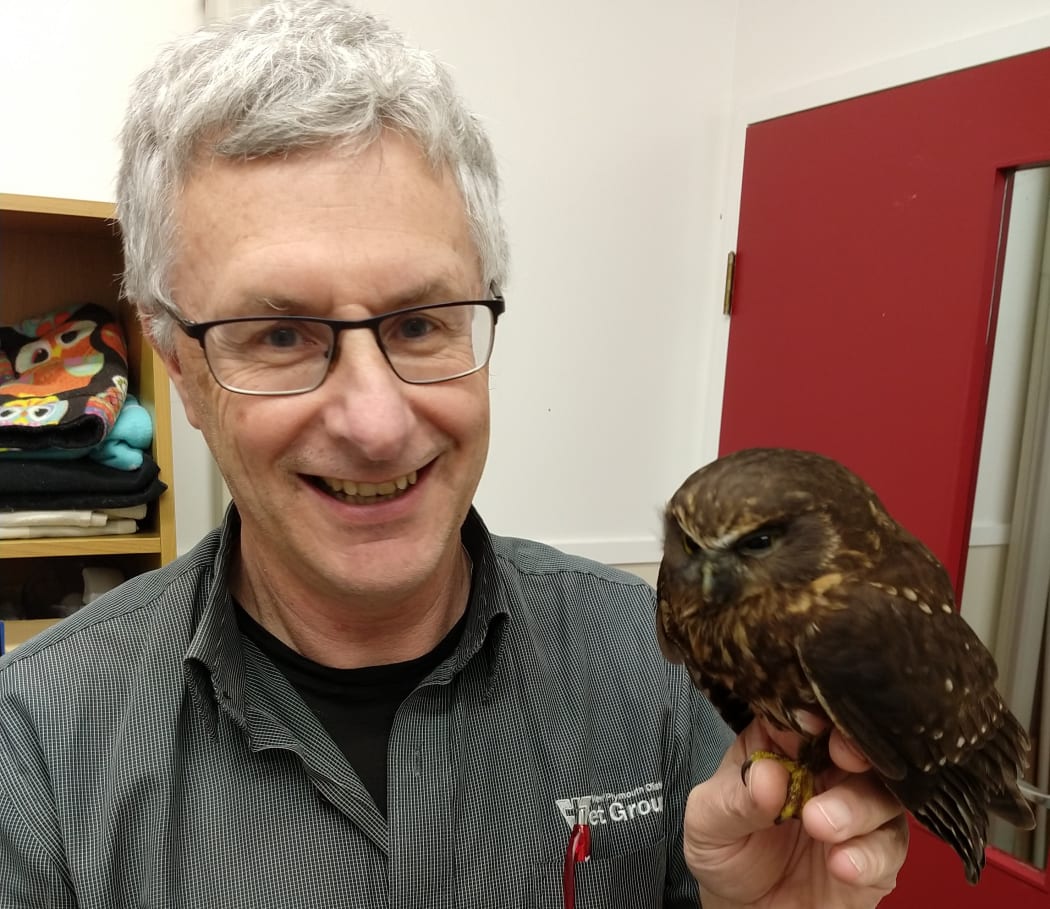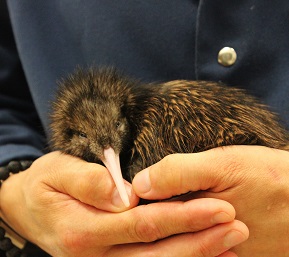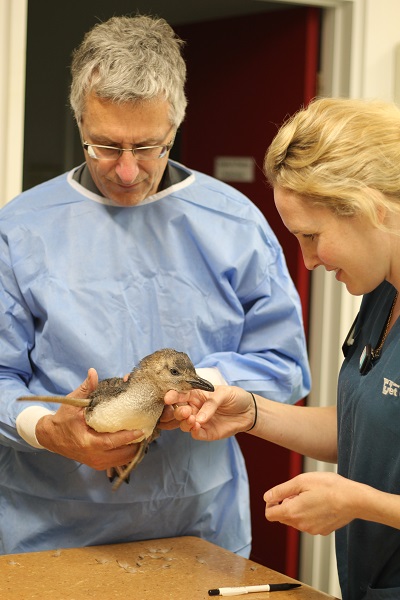
A life’s work: Nursing injured birds back to health
“Receiving the Member of New Zealand Order of Merit (MNZM) is a tremendous honour, both humbling and surreal. I am truly fortunate to lead a team of like-minded professionals who have shared the love and care that urban wild birds deserve,” says Dr. Robert Mills.
A local conservation hero
Dr. Robert Mills, the CEO/Clinical Director of the New Plymouth District Veterinary Group, has been awarded a Queen’s Birthday Honour 2022 for his invaluable conservation and wildlife care services. This award reflects Robert’s over twenty years of care of injured bird life.
When the email arrived informing Robert of the fantastic news, he wondered if it were spam. “I discovered that I was successful by email, probably about two and a half months before the announcement. It’s surreal and a huge surprise to be awarded.”
“I feel humbled and proud of the achievement – it is a reward for the entire team at the clinic.” Robert shares that this award reflects well upon himself, his practice, and the profession. It shows what they care about and their service of supporting the community and the environment.
 Graduating with a Bachelor of Veterinary Science degree from Massey University in 1981, Robert entered a mixed practice in New Plymouth. His wife, Dawn, also a veterinarian, felt that they could do better for their avian patients. She studied and attained membership in Aviary and Caged Bird Health at the Australasian College of Veterinary Science (ANZCVS). Robert followed Dawn’s interests and took over the responsibility of wild bird care after his wife obtained membership in the Australasian Veterinary Poultry Association and started her work in the poultry industry.
Graduating with a Bachelor of Veterinary Science degree from Massey University in 1981, Robert entered a mixed practice in New Plymouth. His wife, Dawn, also a veterinarian, felt that they could do better for their avian patients. She studied and attained membership in Aviary and Caged Bird Health at the Australasian College of Veterinary Science (ANZCVS). Robert followed Dawn’s interests and took over the responsibility of wild bird care after his wife obtained membership in the Australasian Veterinary Poultry Association and started her work in the poultry industry.
Becoming immersed in bird care and gaining in-depth knowledge of veterinary medicine, Robert became a member of ANZCVS in Small Animal Medicine in 1998. Later, he gained his Master of Veterinary Medicine (MVM) degree from Massey University in 2020.
“Education/learning is a lifetime experience. My recent involvement and graduation from the MVM program have rekindled the desire to learn and share such knowledge with my colleagues.”
Robert is well-known in New Plymouth as the go-to expert for injured native birds. He was named by the Department of Conservation’s Taranaki staff as a local conservation hero when the department and New Zealand marked Conservation Week last year. Robert and his team have treated more than 1200 birds with sustained interest and expertise in avian medicine. Treating uncommon seabirds, doing surgery on a kiwi, and helping prions recover following a weather bomb that left thousands of these birds lying exhausted on the city beaches are just some examples of the work that Robert does. Most of Robert’s work is with kerurū and ruru, as they are prevalent in the urban environment.
It’s about giving back
 For Robert, the most enjoyable work is caring for birds and alleviating their suffering. He believes this is an opportunity to give back to the community – local birds are part of our heritage. “We all entered the vet profession because we care. Seeing a successful release is always a thrill – those successes motivate us, and they’re the evidence that we make a difference,” says Robert.
For Robert, the most enjoyable work is caring for birds and alleviating their suffering. He believes this is an opportunity to give back to the community – local birds are part of our heritage. “We all entered the vet profession because we care. Seeing a successful release is always a thrill – those successes motivate us, and they’re the evidence that we make a difference,” says Robert.
There are fifteen veterinarians and twenty-five support staff on Robert’s team. To ensure local birds can get immediate treatment, the clinic runs 24/7 – opening during regular hours, and providing emergency services during off hours.
One of the most recent late-hour patients was a morepork trapped by a parapara (also known as the bird-catching tree) with its feathers all stuck together, and it couldn’t fly. The morepork was brought to Robert’s clinic in the evening and received immediate care. The team cleaned its feathers and released it the following evening.
Asked what a “day in the life” looks like, Robert says it’s busy. Immediate triaging will often tell them what is needed, and resources are then allocated.
Robert has two or three native birds brought in weekly – mostly ones that have been bitten by cats – but nesting time keeps the team much more occupied when juveniles are blown out of nests. Bad weather also plays a role and can lead to the most common injury under such circumstances – birds getting a fractured coracoid (collarbone).
Sometimes, rare birds arrive at the clinic. Recently, a Fiordland crested penguin was washed up and injured at one of the city’s beaches. The team administered supportive care with antibiotics and pain relief and provided supplemental feeding with intravenous fluids. The injured bird was then referred to Massey’s Wildbase Hospital. Unfortunately, it did not recover.
Robert’s team has worked with Massey’s Wildbase for a long time, seeking advice and organizing patient transfers. Recently, the team released two kerurū that Wildbase had rehabilitated.
A commitment to the New Zealand community
 “I can’t imagine doing anything else. Years ago, my most critical decision was to stay in New Zealand and help ‘build’ up a practice – I became the practice principal only four years after graduation – looking back, this single decision shaped my career.”
“I can’t imagine doing anything else. Years ago, my most critical decision was to stay in New Zealand and help ‘build’ up a practice – I became the practice principal only four years after graduation – looking back, this single decision shaped my career.”
Robert shares his advice with those who have difficulties in choosing career paths. “Currently, we are spoiled for choices when it comes to career decisions – if you are in a clinical practice, finding a special interest to keep yourself ‘fresh’ is important to alleviate the daily grind.” Robert believes that having such an interest helps remind him why he started his career forty years ago.
Asked what our community members can do to protect wildlife, Robert says that even if each one of us does a little, the whole community can make a massive difference to our wildlife conservation.
“We all need to do what we can to improve the environment – it might be by planting some trees, or keeping our cats inside at night, or just participating to be a part of the community,” shares Robert.